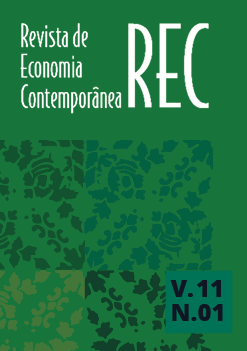Argentina's quarter century experiment with neoliberalism: from dictatorship to depression
Keywords:
neoliberalism, development, foreign debt, IMFAbstract
Argentina set a new historical mark in 2002, having experienced the largest debt default by any country ever. In order to understand how Argentina could go from one of the most developed countries of the Third World, to experiencing the crisis of 2001 and then enter a depression in 2002 with over half the population living in poverty, requires an evaluation of the last quarter century of economic policies in Argentina. The shift toward neoliberalism began during the dictatorship of 1976, deepened during the Menem administration, and was supported throughout by the imf. This paper aims to identify why the crisis occurred when it did, but also to understand how the underlying shifts in the political economy of Argentina over more than two decades led to two waves of deindustrialization, an explosion of foreign debt and such a marked decline in the standard of living for the majority of Argentinians.Downloads
Download data is not yet available.
Downloads
Published
2018-08-31
Issue
Section
Artigos
License
Revista de Economia Contemporânea (Journal of Contemporary Economics) adopts the Creative Commons license attribution-type CC-BY.
All journal content, except where identified, is licensed under a Creative Commons attribution-type CC-BY.


